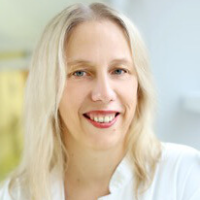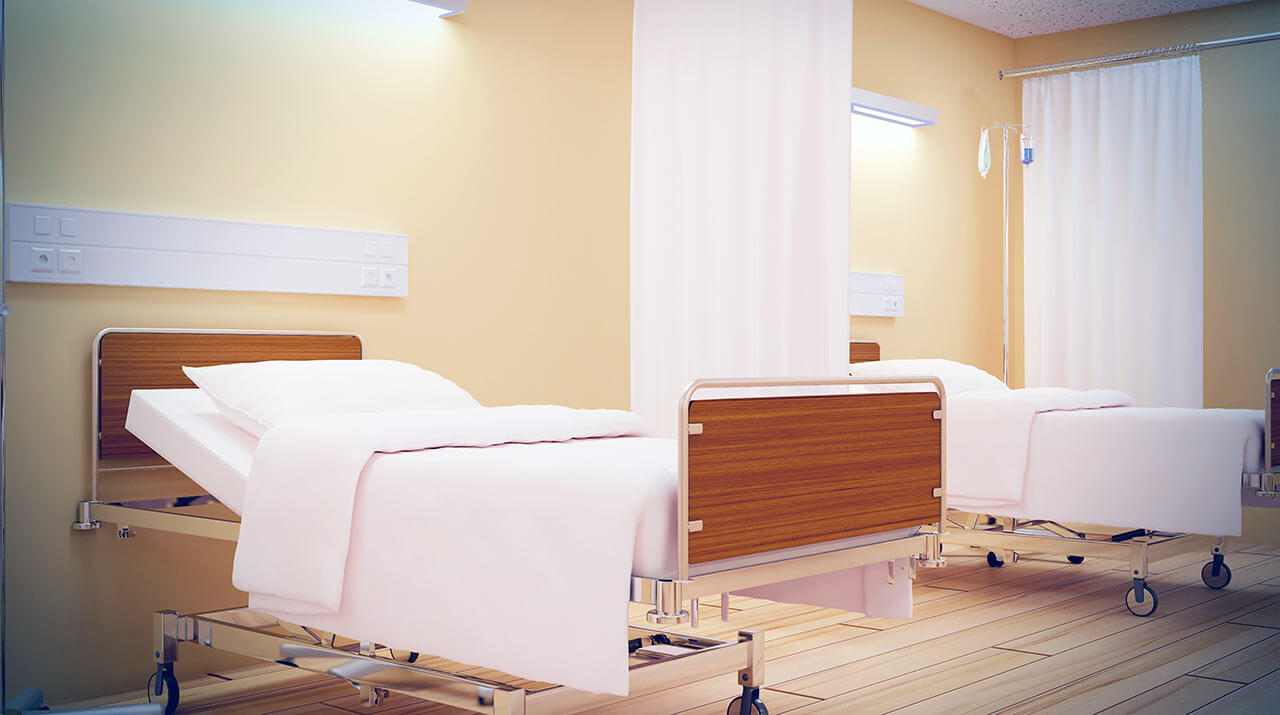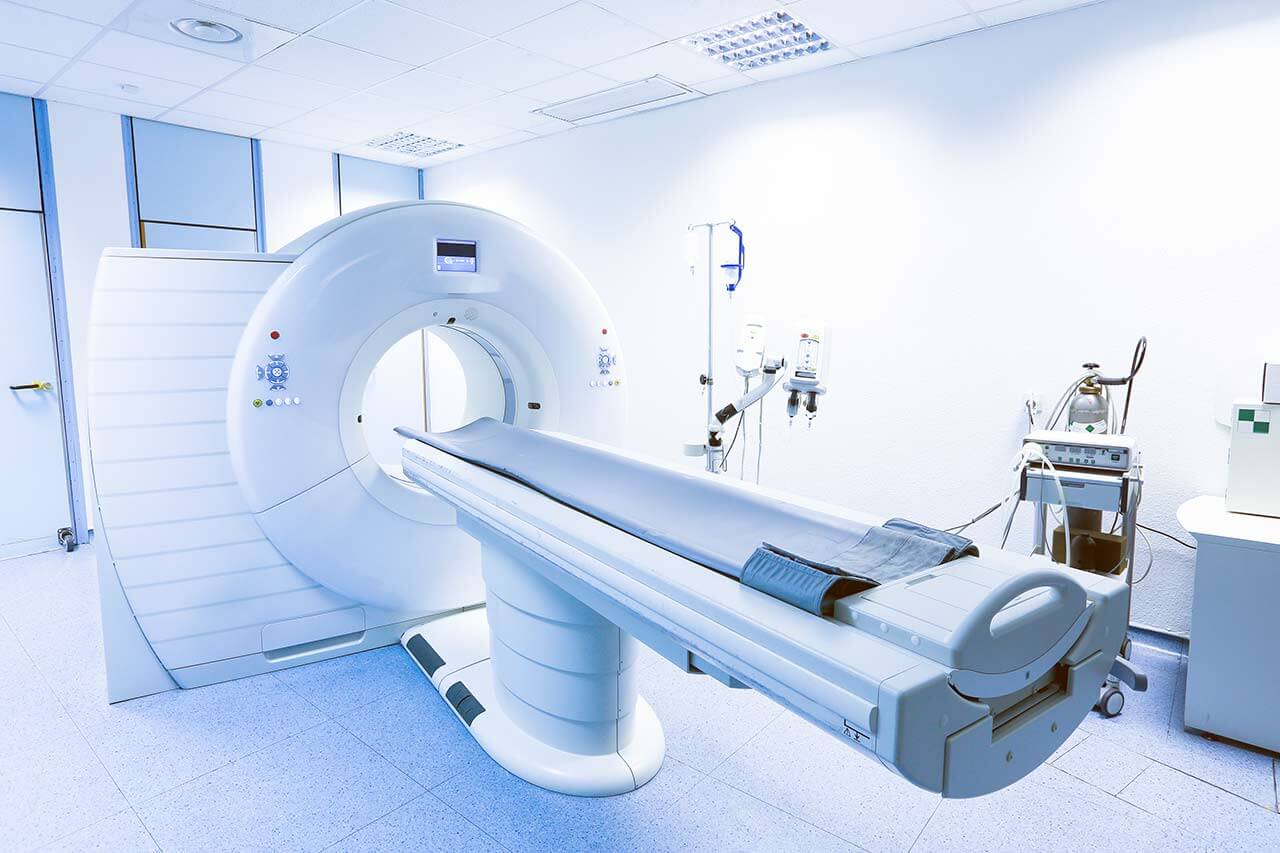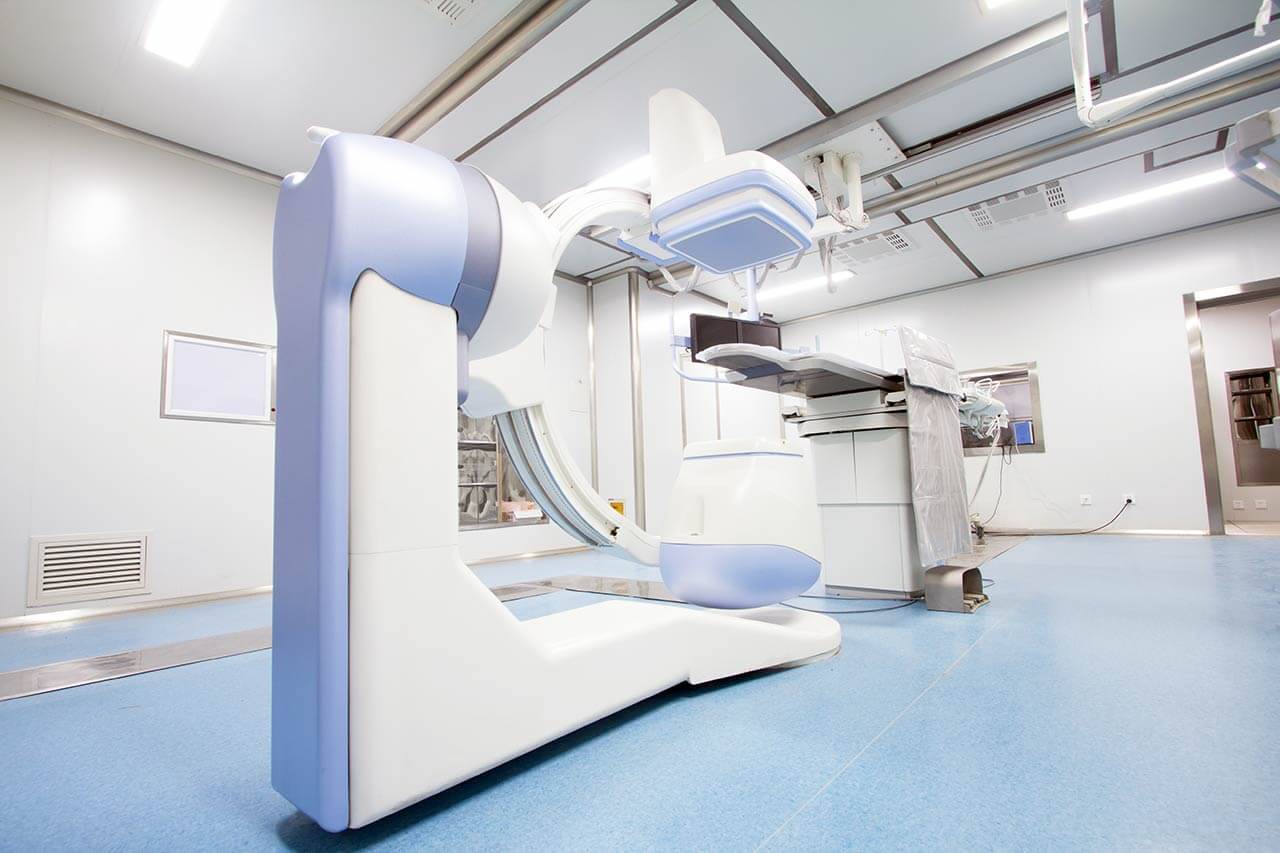
The program includes:
- Initial presentation in the clinic
- history taking
- general clinical examination
- laboratory examination:
- complete blood count
- general urine analysis
- biochemical analysis of blood
- hormonal examination (STH, IGF-1)
- thyroid gland ultrasound
- CT/MRI (if clinically indicated, additional cost is 650/1200€)
- ophthalmologic examination
- nursing services
- consultation of related specialists
- treatment by chief physician and all leading experts
- explanation of individual treatment plan
Required documents
- Medical records
- MRI/CT scan (if available)
Service
You may also book:
 BookingHealth Price from:
BookingHealth Price from:
About the department
The Department of Gastroenterology, Hepatology, Endocrinology, Nephrology and Rheumatology at the University Hospital Greifswald offers the full range of top-class medical care to patients with diseases of the gastrointestinal tract, liver, kidneys, endocrine glands, and rheumatic pathologies. One of the key focuses of the department's work is the treatment of gastrointestinal cancers in cooperation with general and abdominal surgeons. In addition, the department has a high-tech Endoscopy Unit, where patients can undergo modern endoscopic examinations for suspected digestive pathologies and effective endoscopic treatment, which often allows patients to avoid open surgery. In the field of endocrinology, various endocrine disorders are treated. For patients with kidney diseases, the department has a modern Dialysis Unit, where all types of renal replacement therapy are available. Patients with rheumatic diseases most often receive outpatient care. The health of the department's patients is in the safe hands of highly professional doctors with long experience. The specialists make every effort to provide each patient with effective treatment in a pleasant environment. The department is headed by Prof. Dr. med. Sylvia Stracke.
The work of the department's team of gastroenterologists and hepatologists focuses on diagnostic and therapeutic endoscopic procedures. In the Endoscopy Unit, patients can undergo many examinations to assess the internal surface of the gastrointestinal organs when the information obtained using imaging methods is not enough to make a diagnosis. The following endoscopic examinations are carried out in the department: videoendoscopy, chromoendoscopy, esophagogastroduodenoscopy, ileocolonoscopy, endoscopic ultrasound, endoscopic retrograde cholangiopancreatography, push enteroscopy, double balloon enteroscopy, rectoscopy, and percutaneous transhepatic cholangiography. In addition, therapeutic procedures are successfully performed in the department's endoscopy rooms, including ligation and sclerotherapy for esophageal varices, stent implantation to eliminate esophageal and intestinal stenosis caused by benign and malignant tumors, arrest of gastrointestinal bleeding using clipping, injections, and fibrin glue, and also mucosectomy, polypectomy, argon plasma coagulation for stenosing or bleeding tumors, etc. All procedures are performed by highly qualified and experienced specialists, so patients trust their health to real professionals.
Endocrinology is represented by a separate team of doctors who are responsible for the diagnostics and treatment of endocrine disorders. The specialists treat pathologies of the thyroid gland and parathyroid glands, pituitary gland, hypothalamus, adrenal glands, and gonads. Patients with lipid, protein, and carbohydrate metabolism disorders can also get medical care here. Of particular interest is the treatment of type 1 and type 2 diabetes mellitus. The basis of treatment for endocrine pathologies is the prescription of drugs, the action of which is aimed at stimulating or suppressing the synthesis of a particular hormone. The department's endocrinologists also often recommend reconsidering lifestyle and diet. Diabetes mellitus remains an incurable pathology, but the department's doctors use modern therapies to compensate for this pathology. The first-line treatment is oral hypoglycemic medications or insulin therapy (for type 1 diabetes mellitus). An integral part of the therapeutic process is a strict diet, the rejection of bad habits, and regular physical activity.
In the field of nephrology, the department diagnoses and treats the full range of kidney diseases and arterial hypertension. The doctors focus on patients with acute and chronic kidney failure, inflammatory processes in the kidneys, hereditary kidney diseases, renal osteodystrophy, and endogenous and exogenous intoxications. The specialists also prepare patients for kidney transplants and provide follow-up care after surgery. The department has a Dialysis Unit with advanced equipment for various types of renal replacement therapy, including hemodialysis, hemofiltration, hemodiafiltration, apheresis, acetate dialysis, hemoperfusion, plasmapheresis, and many others.
The department's therapeutic offer is complemented by the treatment of rheumatic diseases that cause damage to the joints, connective tissue, and internal organs. The most common diagnoses in the department's clinical practice include rheumatoid arthritis, psoriatic arthritis, reactive arthritis, crystalline arthropathies (gout and pseudogout), spondyloarthropathies, collagenoses (for example, systemic lupus erythematosus and systemic scleroderma), myositis, and vasculitis. The department carries out all the examinations that are necessary to make an accurate diagnosis. These include laboratory tests, ultrasound scans, X-ray, CT, MRI, and scintigraphy. The treatment tactics are determined for each patient individually. In most cases, drug therapy with pills, therapeutic exercises, massage, and physiotherapy procedures are prescribed. In more complex clinical cases, the department's doctors resort to intra-articular injections.
The department's key clinical focuses include:
- Gastroenterology and hepatology
- Diagnostics and treatment of stomach diseases
- Diagnostics and treatment of colon diseases
- Diagnostics and treatment of esophageal diseases
- Diagnostics and treatment of pancreatic diseases
- Diagnostics and treatment of liver diseases
- Diagnostics and treatment of gallbladder and biliary diseases
- Endocrinology
- Diagnostics and treatment of thyroid diseases
- Diagnostics and treatment of parathyroid diseases
- Diagnostics and treatment of adrenal diseases
- Diagnostics and treatment of pituitary and hypothalamic diseases
- Diagnostics and treatment of gonadal diseases
- Diagnostics and treatment of types 1 and 2 diabetes mellitus
- Diagnostics and treatment of metabolic disorders
- Nephrology
- Diagnostics and treatment of kidney pathologies
- Diagnostics and treatment of arterial hypertension
- Rheumatology
- Diagnostics and treatment of rheumatoid arthritis
- Diagnostics and treatment of psoriatic arthritis
- Diagnostics and treatment of reactive arthritis
- Diagnostics and treatment of crystalline arthropathies: gout and pseudogout
- Diagnostics and treatment of spondyloarthropathy
- Diagnostics and treatment of collagenosis: systemic lupus erythematosus and systemic scleroderma
- Diagnostics and treatment of vasculitis
- Diagnostics and treatment of myositis
- Diagnostics and treatment of other diseases
The department's range of therapeutic services includes:
- Gastroenterology and hepatology
- Drug therapy
- Endoscopic procedures
- Ligation and sclerotherapy for esophageal varices
- Stent implantation for dilatation of benign and malignant stenoses of the gastrointestinal tract, biliary tract, and excretory pancreatic ducts
- Endoscope-guided pneumatic dilation for achalasia cardia
- Injection therapy, clamping, and fibrin glue for gastrointestinal bleeding
- Mucosectomy and polypectomy for neoplasms in the upper and lower gastrointestinal tract
- Rectoscopy
- Papillotomy and stone removal from the gallbladder and pancreatic ducts
- Mechanical lithotripsy for pancreatic and bile duct stones
- Argon plasma coagulation for stenosing or bleeding tumors
- Percutaneous endoscopic gastrostomy (PEG)
- Endosonography-guided drainage of cysts
- Endoscopic interventions on the pancreas and biliary tract, including necrectomy
- Endocrinology
- Drug therapy
- Hormone replacement therapy
- Nephrology
- Drug therapy
- Renal replacement therapy (dialysis)
- Hemodialysis
- Hemofiltration
- Hemodiafiltration
- Peritoneal dialysis
- High-flow hemodialysis
- Apheresis
- Acetate dialysis
- Bicarbonate dialysis
- Single-needle dialysis
- Hemoperfusion
- Plasmapheresis
- Liver support methods (for example, MARS)
- Continuous ambulatory peritoneal dialysis
- Intermittent peritoneal dialysis
- Long-term nocturnal dialysis
- Dialysis for hepatitis C and HIV-positive patients
- Rheumatology
- Drug therapy with pills
- Intra-articular injections
- Physiotherapy procedures
- Therapeutic exercises
- Other treatment methods
Curriculum vitae
Prof. Dr. med. Sylvia Stracke is the Head of the Department of Gastroenterology, Hepatology, Endocrinology, Nephrology and Rheumatology at the University Hospital Greifswald and Medical Director of the Nephrology Center Greifswald. Her interests include adaptive immune response in dialysis patients with Staphylococcus aureus, transdifferentiation of vascular smooth muscle cells to osteoblast-like cells under uremia in vitro, and care for patients with chronic kidney disease. In addition, Prof. Stracke regularly participates in various epidemiological trials of kidney diseases. In addition to research, she is actively involved in teaching. Prof. Stracke is a member of the German Society of Nephrology (DGfN). Since 2018, she has headed the Women and Kidneys DGfN Committee.
Photo of the doctor: (c) Universitätsmedizin Greifswald
About hospital
According to the reputable Focus magazine, the University Hospital Greifswald is included in the ranking of the best medical complexes throughout Germany!
The hospital is one of the oldest healthcare facilities in Germany, with long traditions and an excellent reputation. The history of the hospital begins in 1456, when the Faculty of Medicine at the University of Greifswald was founded. During this time, the hospital has managed to earn recognition in the national medical arena and gain prestige abroad. The hospital has 19 institutes and 21 specialized departments. The key to successful clinical practice is the combination of state-of-the-art equipment and highly qualified medical personnel who are actively engaged in the development of effective medical techniques and implement them in everyday practice.
The medical team of the university hospital has more than 4,400 employees, including world-famous professors who regularly undergo advanced training in the leading European and American hospitals, where they share their experience with foreign specialists. The doctors at the medical facility annually treat about 180,000 patients. At the same time, the specialists often provide medical care to patients with complex clinical cases, even in those cases that doctors at other medical centers consider hopeless. The hospital has more than 1,000 beds for inpatients, and many highly-specialized outpatient clinics are available in the medical facility for counseling and outpatient medical care.
The hospital presents all the fields of modern medicine. According to Focus magazine, the medical complex is recognized as one of the best in Germany for treating bowel cancer, bladder cancer, malignant brain tumors, skin cancer, multiple sclerosis, Parkinson's disease, dementia, cardiovascular pathologies, knee and hip pathologies, as well as ophthalmic and proctologic diseases. Diagnostic and therapeutic procedures are carried out in strict accordance with national and international standards, which ensures top-class medical care.
The medical team at the hospital makes sure that each patient feels as comfortable as possible during the therapeutic process. Doctors and nursing staff show humanity and understanding, striving to support each patient in every possible way on the path to recovery.
Photo: (с) depositphotos
Accommodation in hospital
Patients rooms
The patients of the University Hospital Greifswald live in comfortable single and double rooms. The patient rooms are made in bright colors and are quite cozy. The furnishings of a standard patient room include an automatically adjustable bed, a bedside table, a TV, and a telephone. The patient room has a table and chairs for receiving visitors. There is also free Wi-Fi in the patient rooms.
If desired, patients can live in enhanced-comfort rooms. In such rooms, patients are additionally offered toiletries, a bathrobe, and a change of towels.
Meals and Menus
The patients of the hospital are offered three healthy and tasty meals a day: a buffet breakfast, a hearty lunch, and dinner. The hospital also houses a cafeteria where one can have a tasty snack, a cup of aromatic coffee, tea, or soft drinks.
Patients staying in enhanced-comfort rooms are offered a special menu with a wide range of main courses, appetizers, desserts, and drinks.
Further details
Standard rooms include:
Religion
The services of representatives of religions are available upon request.
Accompanying person
Your accompanying person may stay with you in your patient room or at the hotel of your choice during the inpatient program.
Hotel
You may stay at the hotel of your choice during the outpatient program. Our managers will support you for selecting the best option.




